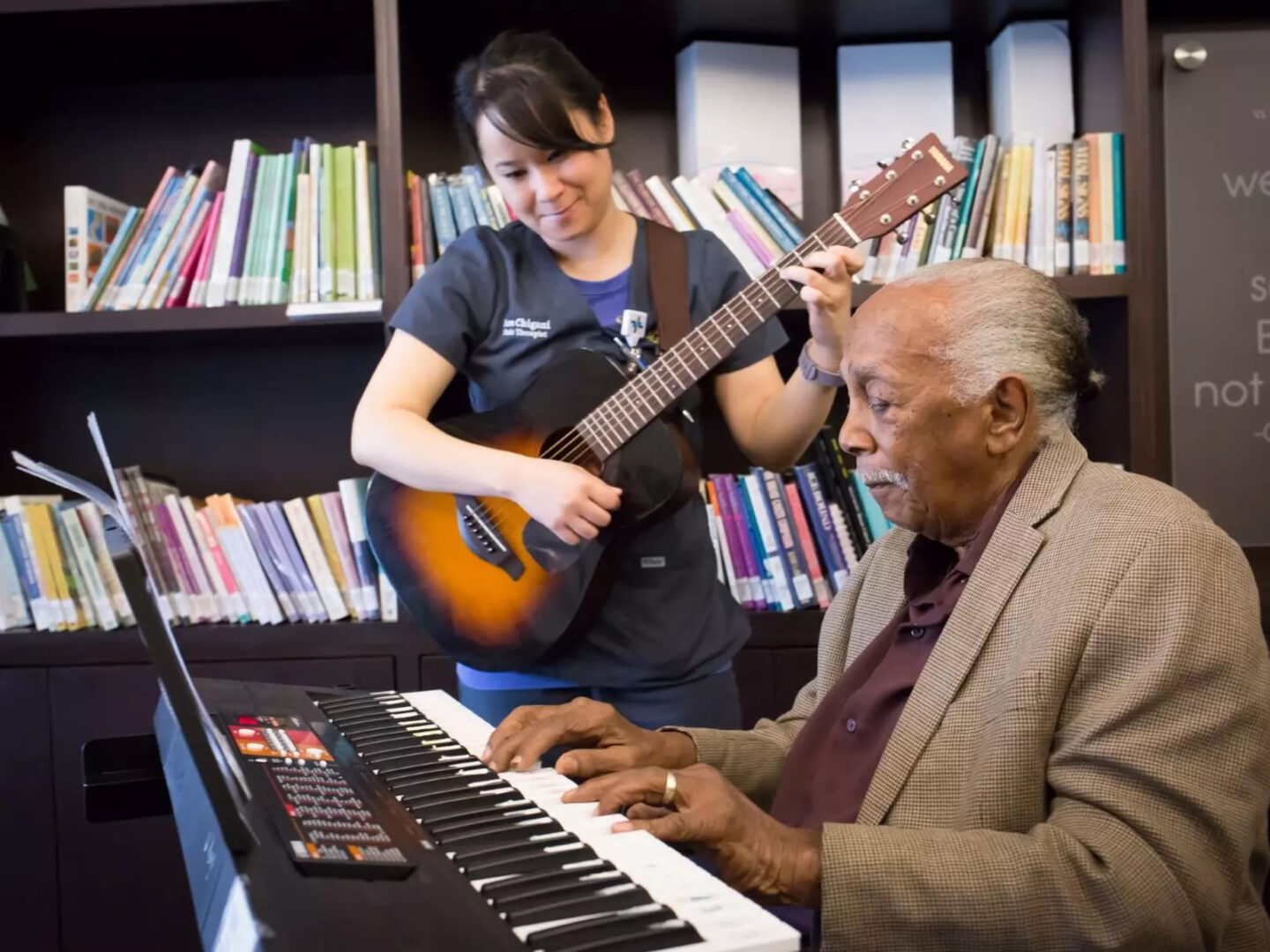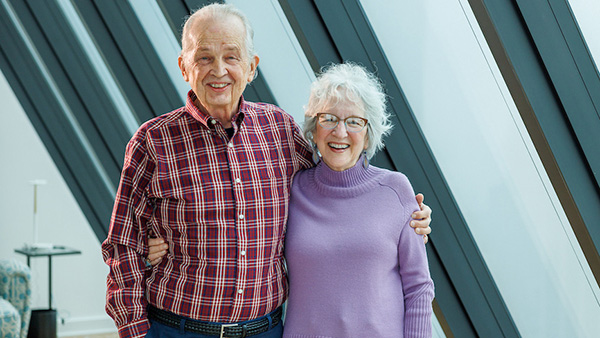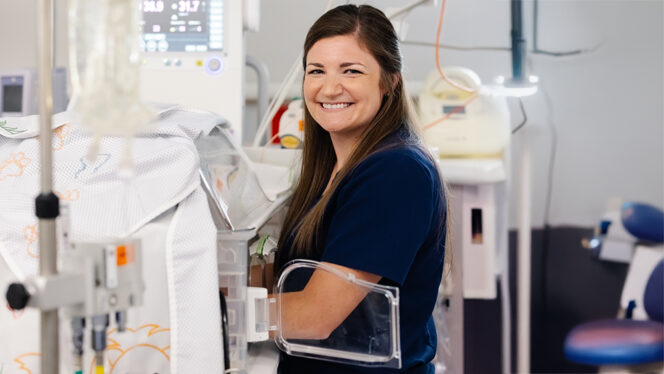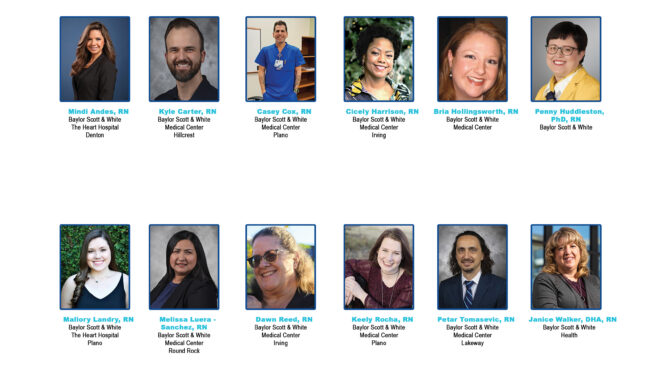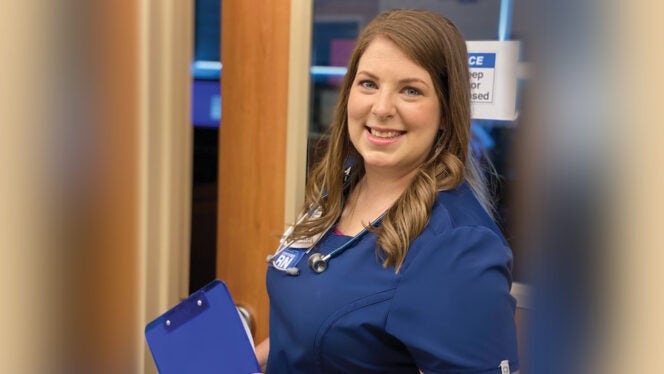In this Article
The pandemic has exacerbated and highlighted a nationwide nursing shortage. Philanthropy is helping Baylor Scott & White Health hire and keep the best.
In this Article
A Nursing shortage
The COVID-19 pandemic has not only highlighted the heroism of nurses but has also brought increased focus to a nationwide nursing shortage. Increased need for healthcare across the country, spurred by the aging of the Baby Boomer population, has created a need for more than 1 million new nurses by 2030. The U.S. Department of Health and Human Services predicts that Texas will have the second-highest need of any state in the country.
“Across the nation, we are all in this same boat as to how we snap back in what I hope is the last chapter of this pandemic,” noted Janice Walker, DHA, RN, chief nursing officer for Baylor Scott & White Health.
Nurse Residency Program
One of the key ways the System is addressing the shortage is through the Baylor Scott & White Nurse Residency Program. All new graduate nurses hired have the advantage of this one-year residency program to help them as they begin their careers as nurses, providing the support they need to succeed. In the same way that medical doctors must complete a residency program before they can practice on their own, newly graduated registered nurses at Baylor Scott & White complete their own residency program to prepare them for successful careers in nursing.
The residency program boasts a success rate of more than 92% in keeping nurses at Baylor Scott & White for more than two years.
“We swaddle that nurse from day of hire to day of independent practice to make sure it is a successful journey. We know that when we put our graduate nurse residents through this program, they are going to excel and we will retain them,” Walker said of the program, which boasts a success rate of more than 92% in keeping nurses at Baylor Scott & White for more than two years. Nationally, the two year retention rate is around 81%.
Accredited by the American Nurses Credentialing Center, this transition-to-practice program provides a formal support and learning framework for newly graduated nurses in their transition from student to professional nurse. Graduate nurses participate in clinical debriefings with mentors who offer support and guidance on real-life challenges, receive guidance on incorporating lifelong learning into their careers, learn and practice stress management techniques, receive mentorship and guidance as they conduct their own evidence-based project, and enjoy a supportive peer group of other newly graduated nurses.
Philanthropic impact
Nursing leaders across the country estimate that it can cost between $100,000 and $150,000 to train one graduate nurse to have the skills and confidence needed to become an independent caregiver and leader. The cost for this training falls on the healthcare entities that hire them.
Philanthropy plays a key role in helping Baylor Scott & White continue to expand this important program. A recent grant of more than $2.2 million from the Deerbrook Charitable Trust will fund the education and support of 200 graduate nurse residents. This year, Baylor Scott & White will educate and support three cohorts of 750 graduate nurses through its residency program, a total of 2,250 graduate nurse residents, representing a five-fold increase over the 500 participants the previous year.
“We have a passion for supporting the education and leadership of nurses,” said Harris Clark, a director of the Deerbrook Charitable Trust. “Nurses are the backbone of a health system and we must equip them with the resources they need to succeed. We are honored to have a role in supporting the careers of these caregivers.”
“These gifts set graduate nurses up for career success for the rest of their lives,” Walker noted. “They get the time to turn knowledge and skills into independent practice. Nurses are truly
the front line for humanity’s health. Giving them the tools, training and support they need to do their jobs well not only allows them to pursue their passions but also invests in the well-being of our communities.”

